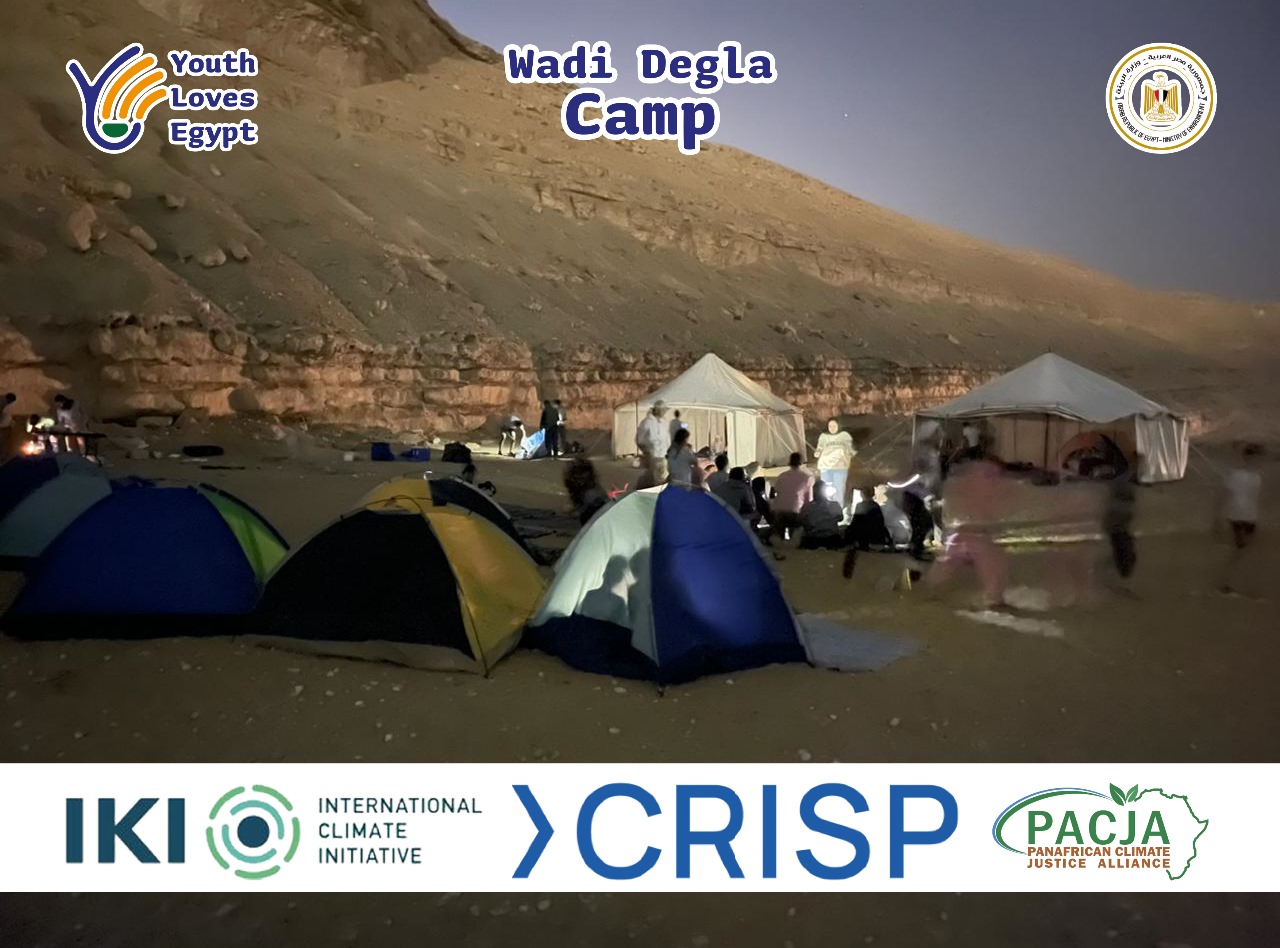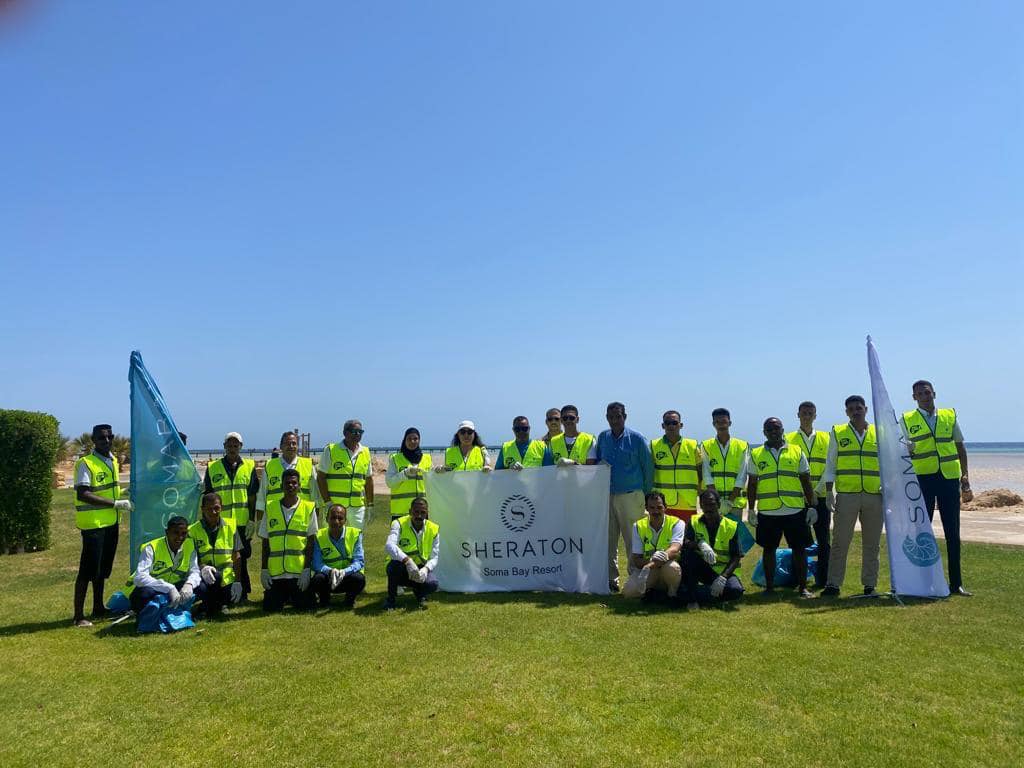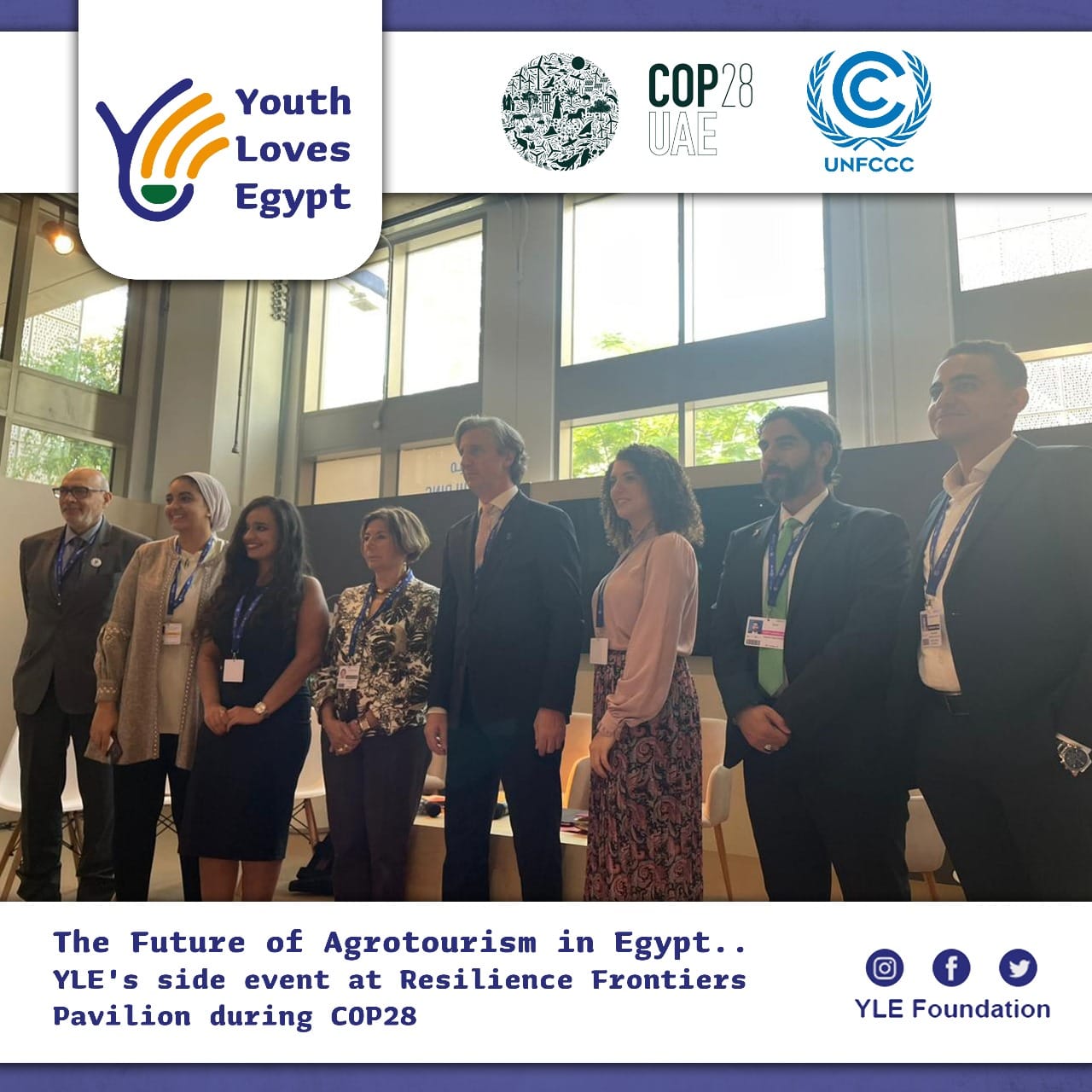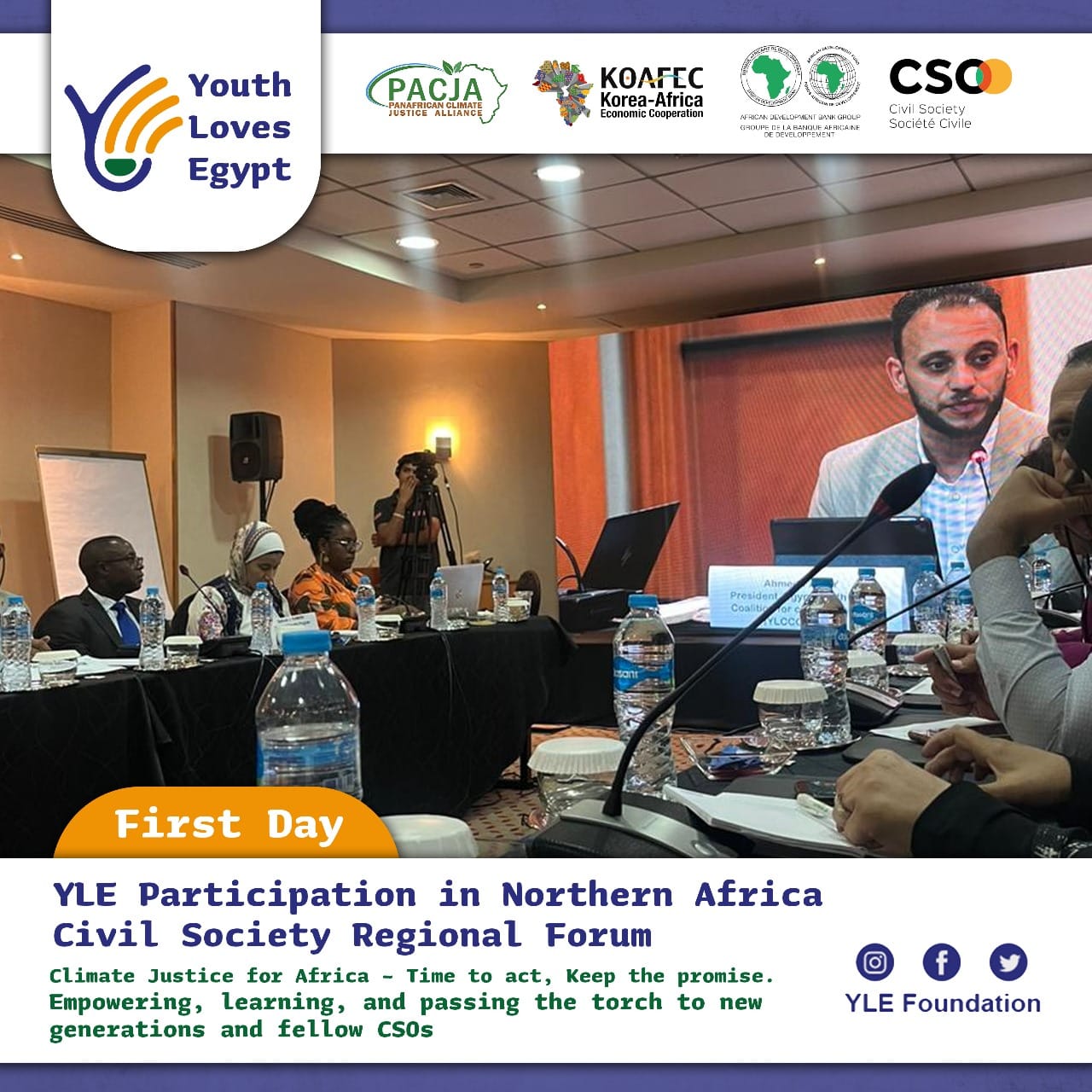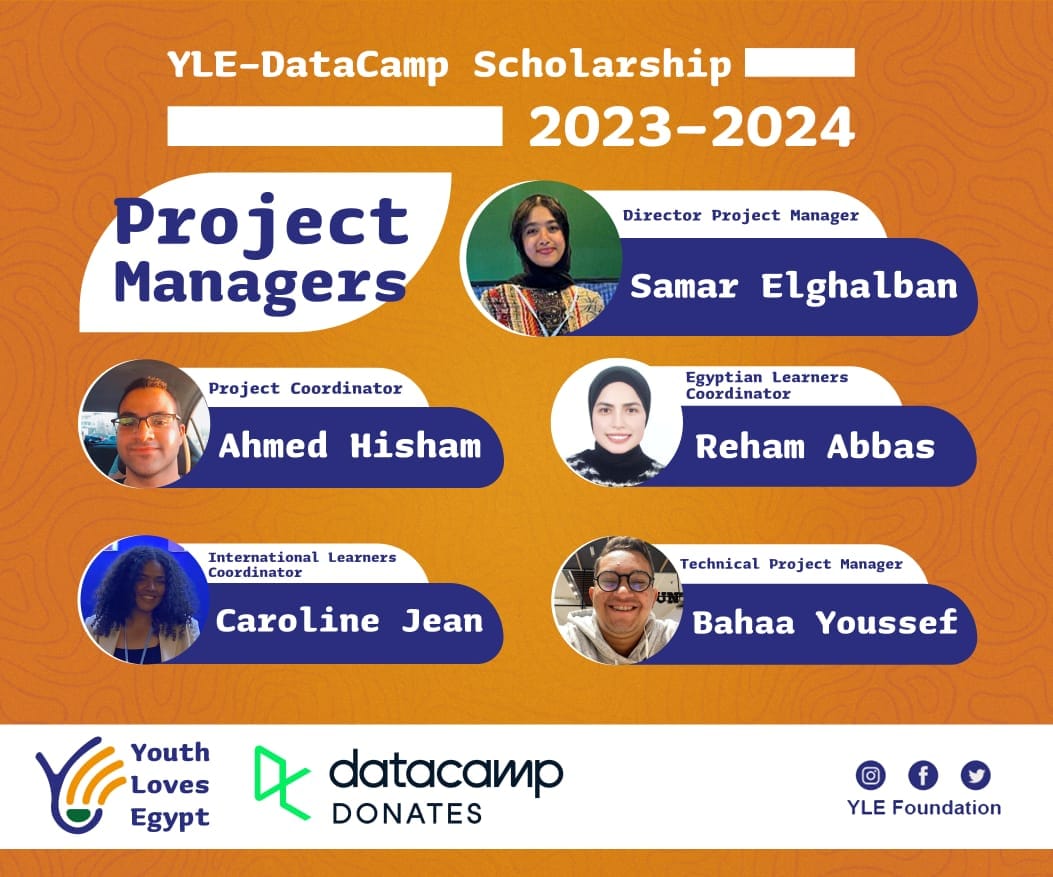As part of its ongoing efforts to raise awareness about environmental and climate issues, the Youth Love Egypt Foundation, led by Ahmed Fathy, organized an interactive summer camp at Wadi Degla Reserve in the eastern part of Maadi district in Cairo. The camp was sponsored and funded by CRISP and IKI.
35 boys and girls between the ages of 8 and 16 participated in the camp, with the assistance of 25 volunteers and foundation members.
The camp, which lasted for a day and a night, featured various interactive activities aimed at enhancing awareness of the importance of environmental conservation and understanding climate change. The children began with an introductory tour of the reserve, followed by mountain climbing activities and souvenir photography. The camp concluded with a cleanup campaign in the reserve on the following morning.
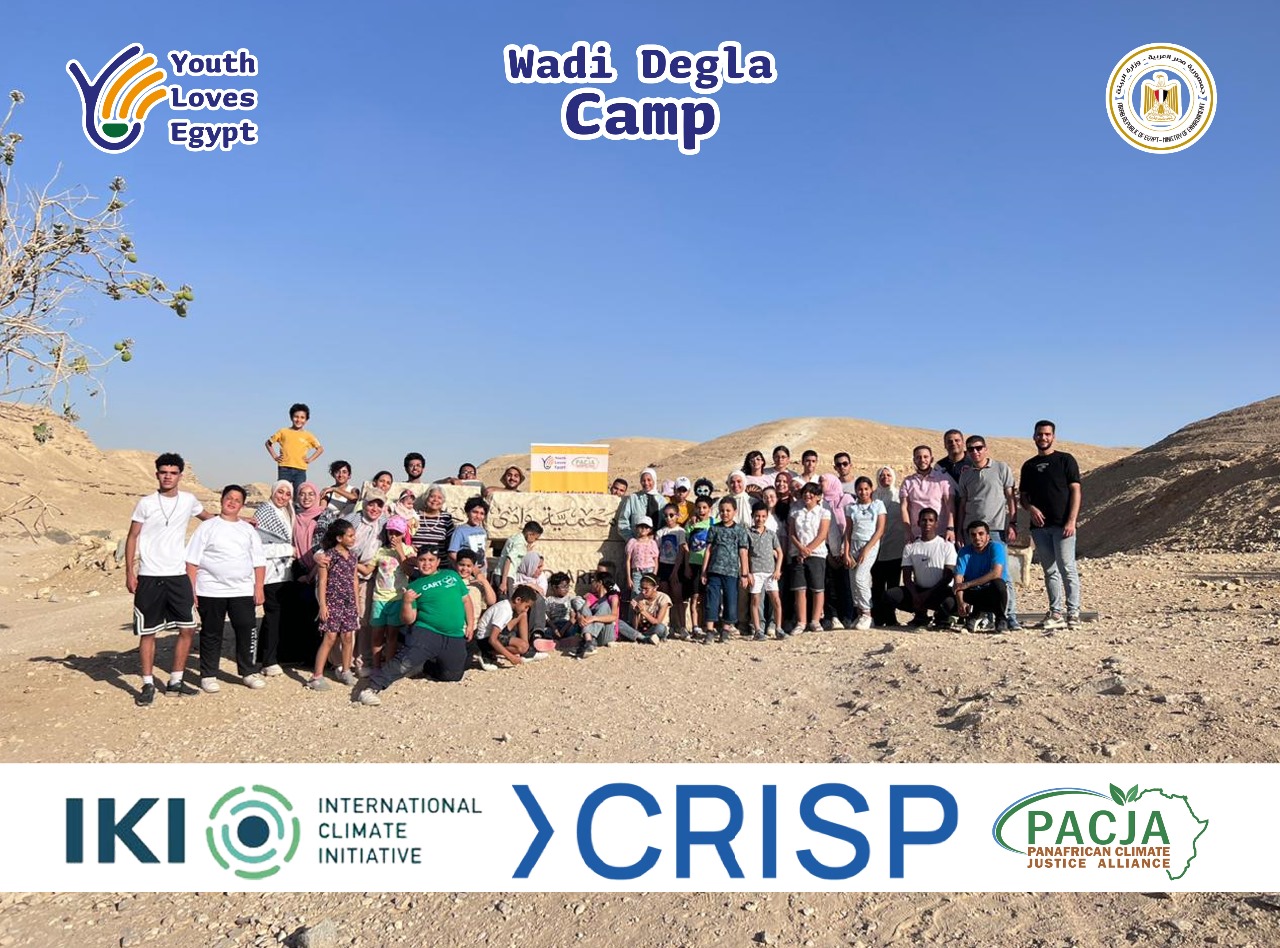
Parents praised the camp and the unique experience it provided for their children, allowing them to discover nature and acquire new skills. The camp also received support from the Ministry of Environment, which waived camping fees for the foundation, emphasizing the effective role of the organization in environmental and climate education.
Notably, prominent figures attended the camp, including Deputy Nader Moustafa, Deputy Chairman of the Tourism and Culture Committee in the House of Representatives, Shaimaa Abdel-Ilah, a member of the National Press Authority, and journalist Khairiya Shaalan. Their presence added moral value to the event.
This camp is an integral part of the Youth Love Egypt Foundation's series of initiatives, committed to nurturing an aware and nature-loving generation. The foundation focuses on introducing young people to Egypt's important natural reserves and educating them on the principles of conservation.
The Youth Love Egypt Foundation, which holds consultative status with the United Nations Economic and Social Council and is an observer member of the United Nations for the Environment and Climate Change, reaffirms its commitment to building youth capacities and promoting education, particularly in the realm of environment and biodiversity. They aim not only to be recipients of knowledge but also influential actors within their communities.

